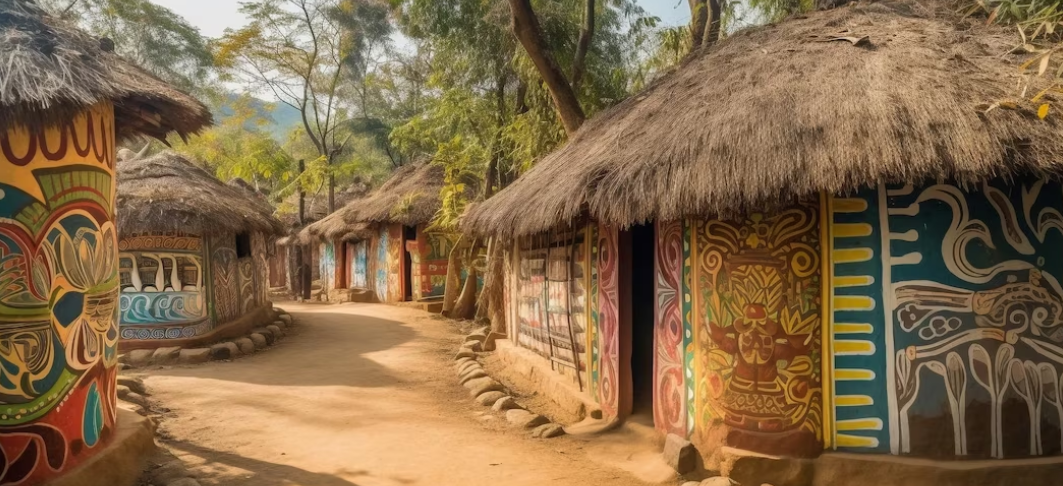
Written By: Altamash Khan;
In the land of a billion dreams and differences, India, the tale of necessitous communities is one of stark contrasts. On one hand, the country boasts a thriving IT industry, dazzling skyscrapers, and a burgeoning middle class; on the other, it is home to some of the world’s most impoverished and marginalized populations. However, in recent years, India has taken a deeper dive into addressing the needs of these communities with a growing political will to effect meaningful change.
India’s history is replete with diversity and complexity, and this extends to its social fabric. As a nation, it has been grappling with vast disparities in income, access to education, healthcare, and basic amenities. The deep-rooted caste system, historical prejudices, and unequal distribution of resources have contributed to the marginalization of communities based on caste, religion, and economic status.
For decades, millions have been trapped in a cycle of poverty, unable to break free from the shackles of deprivation. Lack of access to quality education, healthcare, and employment opportunities has perpetuated this cycle, leaving these communities in dire need of support and empowerment.
In recent years, India has witnessed a burgeoning political will to bridge this chasm of inequality. A new generation of leaders, propelled by a vision of inclusive growth, has emerged on the national stage. Their commitment to addressing the needs of necessitous communities is beginning to yield tangible results. One of the most significant steps towards empowering necessitous communities has been the focus on education. Recognizing that education is the cornerstone of progress, various government initiatives have been launched to ensure equitable access to quality education.
The ‘Beti Bachao, Beti Padhao’ (Save the Girl Child, Educate the Girl Child) campaign is a prime example of this commitment. It aims to address the skewed gender ratio and promote the education of girls, who have historically been denied equal opportunities. By challenging deep-seated societal norms, this campaign is opening doors to a brighter future for young girls across the nation.
Similarly, initiatives like ‘Pradhan Mantri Jan Dhan Yojana’ have sought to bring financial inclusion to the masses. By providing access to banking services and insurance, this program has empowered necessitous communities to save and invest in their children’s education.
Inadequate healthcare has been a longstanding issue in India, disproportionately affecting necessitous communities. Recognizing this, the government has rolled out ambitious healthcare reforms aimed at providing universal health coverage.
The ‘Ayushman Bharat’ scheme, often referred to as ‘Modicare,’ is a game-changer in this regard. It aims to provide free healthcare coverage to over 100 million poor and vulnerable families, offering them financial protection against high medical expenses. This scheme has not only alleviated the burden of healthcare costs but has also improved the overall health and well-being of millions.
Creating employment opportunities for necessitous communities has been another key focus area. The ‘Make in India’ initiative, launched to boost domestic manufacturing, has been instrumental in this regard. By attracting foreign investment and encouraging local entrepreneurship, it has created millions of jobs, especially in sectors like manufacturing and technology.
Furthermore, the ‘MUDRA Yojana’ (Micro Units Development and Refinance Agency) has been a lifeline for small and micro-enterprises. It provides access to credit and financial support to aspiring entrepreneurs from necessitous communities, fostering economic independence.
India’s affirmative action policies, such as reservation in educational institutions and government jobs, have been essential in levelling the playing field for necessitous communities. These policies aim to provide opportunities for those who have historically been excluded from various spheres due to their caste or tribe. While reservation policies have been instrumental in bringing marginalized groups into the mainstream, they have also sparked debates about meritocracy and fairness. Striking a balance between the need for social justice and the aspiration for a merit-based society remains a challenge, but these policies are a testament to India’s political will to address historical injustices.
While India’s political will to uplift necessitous communities is commendable, significant challenges persist. Corruption, bureaucratic hurdles, and the slow pace of implementation often hinder the effective execution of well-intentioned policies. Additionally, the sheer scale of the issue – with millions of individuals in need – requires sustained efforts and resources.
Furthermore, social prejudices and discrimination persist, making it crucial to not only change policies but also societal attitudes. Empowerment goes beyond providing opportunities; it entails fostering an environment of acceptance and equality. India’s deeper dive into addressing the needs of necessitous communities reflects a growing political will to effect meaningful change. Through educational reforms, healthcare initiatives, employment opportunities, and affirmative action policies, the country is slowly but steadily working towards bridging the gap of inequality. While challenges remain, the journey toward a more inclusive and equitable society is well underway, offering hope for a brighter future for millions of marginalized individuals who call India home.
About the writer: Altamash Khan is a contributing journalist having completed his Journalism at the prestigious Aligarh Muslim University. He has over half a decade of experience writing on a wide range of topics, from politics and social issues to technology and Brands. In addition to his journalism work, Altamash also works as a Public Relations and brand Strategist, helping communicate Brand messages to the World. He would love to hear your thoughts on this issue. Leave a comment below or reach out to us on social media to share your opinions.

